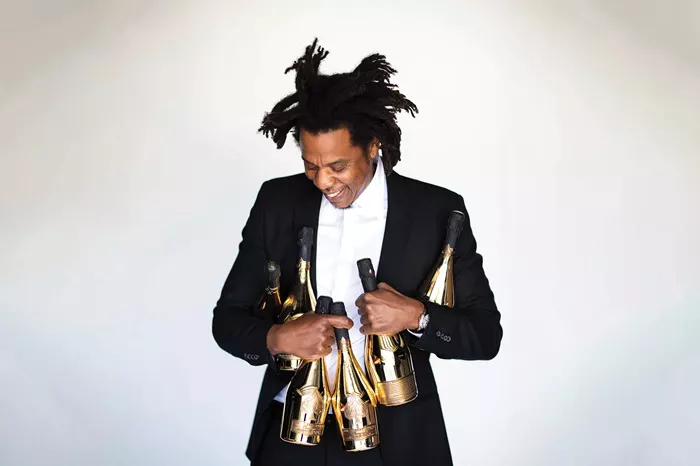Luxury rap, also known as luxury hip-hop or opulent rap, is a subgenre of hip-hop music that focuses on themes of wealth, luxury, extravagance, and success. It is characterized by lavish production, lyrical content centered around materialism, high-end fashion references, and a lifestyle that exudes affluence. In this article, we will delve into the origins, evolution, key characteristics, notable artists, cultural impact, criticisms, and future trends of luxury rap, providing a comprehensive understanding of this intriguing subgenre.
Origins and Evolution
Luxury rap emerged in the late 1990s and early 2000s as hip-hop culture began to embrace and celebrate opulence and wealth. Artists like Jay-Z, Puff Daddy (later known as Diddy), and Kanye West played pivotal roles in popularizing luxury rap through their music, fashion choices, and entrepreneurial endeavors. These artists were not only skilled lyricists but also savvy businessmen who capitalized on their success to build empires in various industries, from fashion and music production to tech investments.
The evolution of luxury rap can be traced through its sonic and thematic elements. Initially, it was characterized by lush, extravagant beats often incorporating samples from soul, funk, and R&B music, creating a soundtrack that mirrored the opulent lifestyle depicted in the lyrics. As the subgenre evolved, artists began collaborating with high-end fashion brands, showcasing their affinity for luxury goods in their music videos, lyrics, and public appearances.
Key Characteristics
Luxury rap is defined by several key characteristics that distinguish it from other subgenres within hip-hop:
Lyricism Celebrating Wealth: The lyrics in luxury rap songs often revolve around themes of wealth acquisition, material possessions, luxury brands, exotic travel, and living a life of excess. Artists use vivid imagery and wordplay to paint a picture of opulence and success.
Lavish Production: The production quality in luxury rap is typically top-tier, featuring lush instrumentals, intricate melodies, and polished mixing and mastering. Producers often incorporate elements of orchestral music, jazz, and electronic sounds to create a grandiose sonic experience.
Fashion and Lifestyle References: Luxury rap artists are known for their fashion-forward style and references to high-end clothing brands, jewelry, cars, and real estate. Fashion becomes an integral part of their persona, with music videos serving as visual showcases for luxury fashion collaborations.
Entrepreneurial Spirit: Many luxury rap artists are entrepreneurs who leverage their musical success to venture into business realms such as fashion design, luxury alcohol brands, tech startups, and real estate investments. This entrepreneurial spirit is celebrated in their music and public persona.
Notable Artists in Luxury Rap
Several artists have left a significant impact on the luxury rap scene, shaping its sound and aesthetic over the years:
Jay-Z: Often referred to as the blueprint for luxury rap, Jay-Z’s discography is filled with songs that celebrate wealth, business acumen, and success. His collaborations with luxury brands like Rocawear and partnerships in the alcohol and tech industries exemplify his influence in merging hip-hop with entrepreneurship.
Kanye West: Known for his innovative production style and bold fashion choices, Kanye West has been a driving force in pushing the boundaries of luxury rap. His albums, such as “My Beautiful Dark Twisted Fantasy” and “Yeezus,” blend opulent production with introspective lyrics, creating a unique fusion of artistry and extravagance.
Drake: While Drake’s music spans various subgenres of hip-hop, his penchant for luxury references and lifestyle portrayals has solidified his place in luxury rap circles. Songs like “Started From the Bottom” and “Money in the Grave” reflect his journey to success and the rewards of his hard work.
Rick Ross: With his larger-than-life persona and affinity for luxury brands like Maybach and Wingstop, Rick Ross embodies the essence of luxury rap. His albums, such as “Teflon Don” and “Port of Miami,” showcase his storytelling prowess and opulent lifestyle narratives.
Future: Mixing trap influences with luxury rap elements, Future brings a unique vibe to the subgenre. His collaborations with high-end fashion brands and extravagant music videos contribute to his image as a purveyor of opulence in hip-hop.
Cultural Impact and Criticisms
Luxury rap has had a profound impact on hip-hop culture and mainstream society. On one hand, it has opened doors for artists to transcend music and enter industries traditionally associated with wealth and status. This crossover appeal has expanded the reach of hip-hop globally, attracting audiences beyond traditional rap enthusiasts.
However, luxury rap has also faced criticism for promoting materialism, excess, and superficial values. Some argue that the focus on wealth and luxury detracts from the socio-political roots of hip-hop and perpetuates stereotypes about success being solely defined by material wealth. Critics also point out disparities in access to wealth and opportunities within the music industry, raising questions about authenticity and representation in luxury rap narratives.
Future Trends and Evolution
As hip-hop continues to evolve, luxury rap is likely to undergo further transformations. Artists may explore new themes beyond material wealth, delving into topics like legacy building, philanthropy, and social impact. Collaborations between luxury brands and hip-hop artists are expected to increase, blurring the lines between music, fashion, and lifestyle branding.
Additionally, emerging artists from diverse backgrounds are bringing fresh perspectives to luxury rap, challenging conventional notions of opulence and success. These voices contribute to a more nuanced and inclusive conversation within the subgenre, paving the way for continued innovation and artistic expression.
Conclusion
In conclusion, luxury rap represents a fascinating intersection of wealth, style, and artistry within hip-hop culture. Its evolution mirrors broader societal shifts towards embracing luxury and self-expression, while also sparking debates about the role of materialism in contemporary music and culture. As the subgenre continues to evolve, it remains a dynamic and influential force in the ever-changing landscape of hip-hop.

